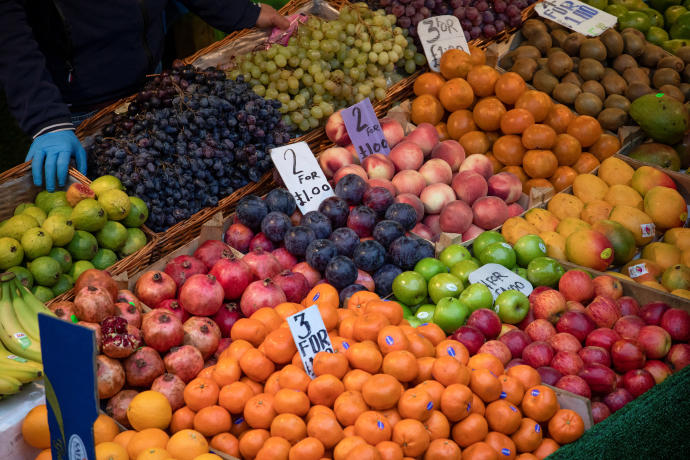Many fad diets say to avoid carbs, yet complex carbohydrates, unlike a processed cookie with white flour and sugar, are rich in dietary fiber and various vitamins and minerals.
There are several health benefits in these carbs that are important to know. Besides providing our bodies with the energy that they need, complex carbohydrates will enrich your body with vitamins. The antioxidants found in them are important, too, and may even extend your lifespan and help you maintain a healthy weight.
Carbs are fuel for the body and are classified into three types: cellulose, starch and glycogen, which are called complex carbohydrates, and fiber which is a type of plant-derived polysaccharide.
Not eating enough carbs will lead to a decrease in the body's glucose level and a feeling of dryness and weakness.
Health organizations around the world recommend getting 50% of your daily calories from complex carbs - foods with a large amount of dietary fiber rather than sugary drinks or foods with a high sugar content.

These five carbohydrates have various health benefits
Fruit
Since fruits such as bananas and apples contain quite a lot of carbs and natural sugars, people who eat fewer carbs don't eat these fruits. Yet eating an apple or a banana is good for you, especially when eaten whole and not as a smoothie or juice.
Bananas contain vitamins A, C and 6B, as well as potassium, magnesium, folic acid, antioxidants and also iron, proteins, carbs, fats and fiber. In short, you can find a little bit of everything you need nutritionally in one banana.
If you like apples, eat them with the peel, as this provides double the amount of fiber, and also 25% more potassium and 40% more vitamin A.
Cashews
Compared to other nuts, cashews contain less fat and more carbs and should be eaten in moderation. A quarter cup of cashews contains 10 grams of carbs with 17 milligrams of healthy omega-3 fatty acids, not found in almonds, and components which help lower the "bad" cholesterol known as LDL.
Oats
Whole grains such as oats contain 14 grams of carbs per cup and a half, but they contain soluble fiber, which is critical for maintaining heart health and lowering cholesterol levels, an important advantage when most of a person's diet is based on animal fat.
Oats also contain adequate amounts of iron, folic acid and magnesium. They have a low glycemic index, which stabilizes blood sugar levels and is good for people with diabetes. This helps in weight loss processes and maintaining a normal weight.
Lentils
A cup and a half of cooked lentils contains about 60 grams of carbs, so some people reduce the amount of legumes they consume. Too bad, as one cup of cooked lentils also contains 18 grams of protein (almost as much as three eggs) and 15 grams of fiber, plus minerals like copper, zinc and phosphorus without saturated fat.
Pumpkin
The pumpkin family is a good source of gluten-free carbohydrates and dietary fiber, which make you feel full for a long time. They're easy to digest and are low in calories which helps one maintain weight.
Pumpkins are rich in antioxidants which help prevent oxidation and they have a high amount of vitamin A, C, potassium, folic acid and a high concentration of beta carotene. The zinc found in pumpkin stimulates the immune system and heals wounds, so eat more pumpkin in order to strengthen the function of the immune system.
